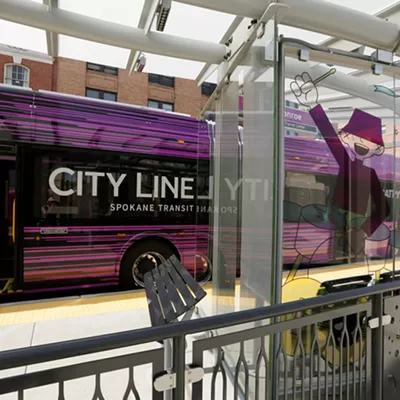When I worked as a legislative staffer, town halls were the best time for representatives to connect with their constituents. Everybody was welcome — not just the constituents who agreed with the elected official.
That was one of the most important parts of the job: To listen. Now, with an impending congressional vote to repeal and replace the Affordable Care Act, millions of Americans understandably have a lot to say. But instead of hearing their voices, last week's congressional recess proved that the Republican leaders are cowards.
Behind closed doors, these same lawmakers are moving forward on repeal plans in light of the widespread backlash they know will occur. A draft bill was leaked on Friday, apparently receiving an unfavorable analysis from the Congressional Budget Office, the official scorekeepers regarding the cost and coverage implications of legislation. One thing was clear in the text: The Medicaid program — our country's primary health care safety net — would be completely overhauled. Such drastic shifts should require tough questions, but the members of Congress aren't having it.
This is not some leftist version of the Tea Party protests in 2010. These are not paid volunteers. These are real people who will suffer the consequences and want to have a civil dialogue. And yet around the country, citizens were often forced to hold town halls on their own, with cardboard cutouts of leaders who refused to attend. The unprecedented public outcry is making a mark.
Congressman Dave Reichert — a former King County sheriff who never fails to mention that he single-handedly caught the Green River killer — is afraid to talk to a constituent in Wenatchee about the Medicaid services he is willing to take away. At the same time, the 8th District representative briefed members of his party on how to hire extra security, find escape doors and run from conditions that would create a "YouTube moment." That's what this is all about: Of course, lawmakers and staff should be safe, but this isn't about safety — it's about not getting called out in a room full of people begging to not have their health care taken away. Looking like a monster isn't a good look.
One Texas Republican, Rep. Louie Gohmert, used the shooting of former Congresswoman Gabrielle Giffords during a 2011 public appearance to provide cover for his absence. Giffords wasn't having it. "To the politicians who have abandoned their civic obligations, I say this," she continued. "Have some courage. Face your constituents. Hold town halls."
The delay in repealing the ACA and this tiptoeing around the political minefield is a hopeful sign that a long-term movement for health care access has taken root. Idaho Congressman Raul Labrador didn't hold any public meetings, but spoke to the Boise Metro Chamber of Commerce during the recess, explaining that "I just get to decide when I do town halls, not the media or anybody else." Regardless, protesters were in full force outside.
Rep. Cathy McMorris Rodgers has also shrugged off the "Where's Cathy?" posters and advertisements, even though her district covering Eastern Washington would, in particular, be hit hard by the loss of the ACA.
Her few days in town during the recess didn't provide answers for those concerned. You needed to apply for her telephone "town hall," and when a caller demonstrated that the uninsured rate in Washington was down 60 percent thanks to the ACA, she said, "I disagree with your facts." Then came a "Coffee With Cathy" event for pre-screened guests, so constituents held a "Coffee Without Cathy" outside her office. But inside, the meeting was telling. These tightly controlled events indicated that the congresswoman doesn't know how the ACA really works.
We must keep fighting to get through. Where was Cathy in the middle of the congressional recess? On the first flight back to the other Washington, hiding from the truth like so many others. ♦
CORRECTION: This column incorrectly reported that Cathy McMorris Rodgers referred to recipients of Medicaid expansion as "deadbeats" during the recent “Coffee With Cathy” event. The description was repeated to Paul Dillon by multiple attendees, but their recollections were inaccurate.

















